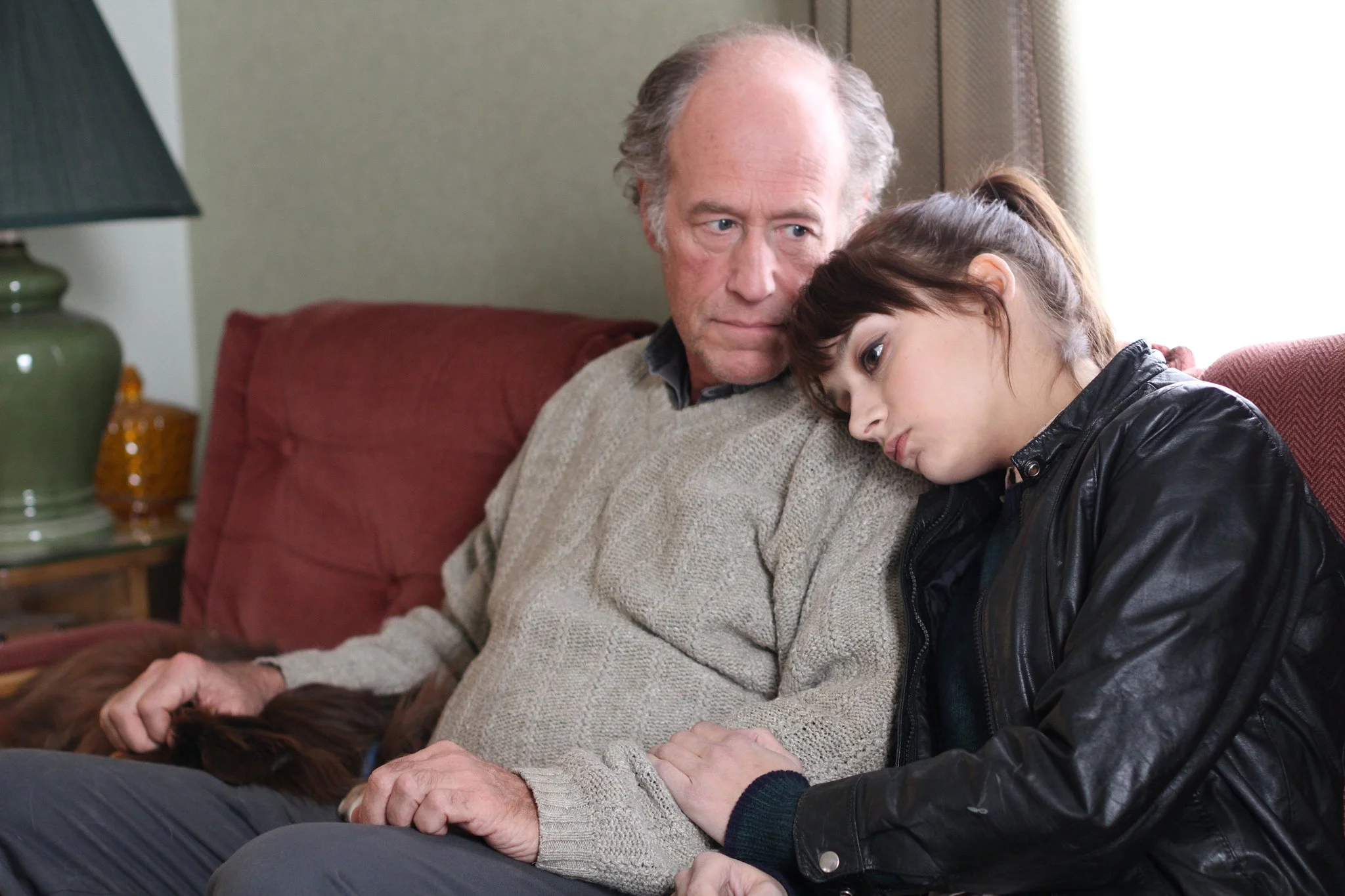The Auction (2013) Film Review
Family is defined as the primary social group, but it is also a financial alliance. Conflict arises when one member, consequences be damned, appropriates more of a family’s cash reserves than is considered fair or even sustainable, as in “The Auction”. Despite logical arguments to the contrary, sheep farmer Gaby Gagnon opts to divest himself of his life’s work so his daughter Marie can maintain her comfortable lifestyle.
Farmer Gaby Gagnon (Gabriel Arcand) shares a special moment with his grandson.
French-Canadian filmmaker Sebastien Pilote adopts an unusual approach. Although the relationship between Gaby (Gabriel Arcand) and his two daughters is central to the story, the female characters occupy relatively little screen time. First, Pilote establishes the centrality of the farm to Gaby’s identity. The documentary-type scenes that comprise the first act demonstrate Gaby’s deep love for the land and animals that are under his care. It is clear from Gaby’s frugal lifestyle though, including the battered Ford truck he drives and a spartan wardrobe, that he is struggling financially.
Gaby’s daughter Marie (Lucie Laurier) arrives from Montreal for a weekend visit, her two young boys in tow. Her husband’s absence is noted. The dialogue between father and daughter exposes other fissures in family relationships, revealing that Gaby is estranged from his brothers and his second daughter, Frederique (Sophie Desmarais) lives a life apart.
It is on Marie’s next visit that she drops the bombshell. Not only has her marriage disintegrated, but her finances are a mess. Wanting to keep her home, she casually asks Gaby for $200,000 to buy out her husband’s share. It is a scene in which actor Gabriel Arcand shines. Playing a taciturn, undemonstrative character, Arcand conveys the shock of this outrageous request with minute changes in his facial features.
Gaby gathers himself and proposes a practical solution. Marie and the boys can move in with him. Marie absolutely refuses, even after she learns that Gaby has debts of his own to resolve. In a rash move, and clearly troubled by what lies ahead, Gaby promises to fulfill his daughter’s request.
The asymmetrical relationship between father and daughters is fleshed out in a frank conversation between Gaby and his longtime friend and bookkeeper, Louis (Gilles Renaud). The exchange reveals that Gaby has paid rent and education expenses for his children long into their adulthood. While Louis refers to the women as “princesses”, Gaby insists “they’re just kids.” Unstated, but implicit in Gaby’s insistence on maintaining the provider role, is a lingering guilt over his divorce. He even attempts a reconciliation with his ex-wife, whom he has not seen in decades.
Frederique’s appearance in the film’s third act contradicts the negative perceptions created by her opportunistic sister. She provides the emotional support her father requires during the farm auction. Frederique does the physical labor as well, helping her father clean and empty the house. Marie, in fact, disappears once she has secured her father’s promise of a “loan”. When Frederique states the obvious, “Marie is taking advantage of you,” Gaby responds, “I know. She’s always been like that.”
Frederique (Sophie Desmarais) commiserates with her father, Gaby.
Frederique is a fledgling actress. Her moral superiority to her sister is underpinned in the final scenes as she auditions for the role of Cordelia in “King Lear”. Gaby does not descend into madness like Lear, but he seems disconnected from his new reality. Filmmaker Pilote uses color symbolically to denote the difference between Gaby’s bleak future and that of his daughters. The film ends with Gaby settling into a sterile, white apartment bereft of companionship. Marie and Frederique are shown in warm, vibrant shades; Marie is laughing with her children while Frederique is engaged with her theater company.
The original title of the film is “Le Demantelement” which translates as “The Dismantling”. The irony is that Gaby seems to welcome it.
Content copyright © 2025 by Angela K. Peterson. All rights reserved. This content was written by Angela K. Peterson. If you wish to use this content in any manner, you need written permission.


